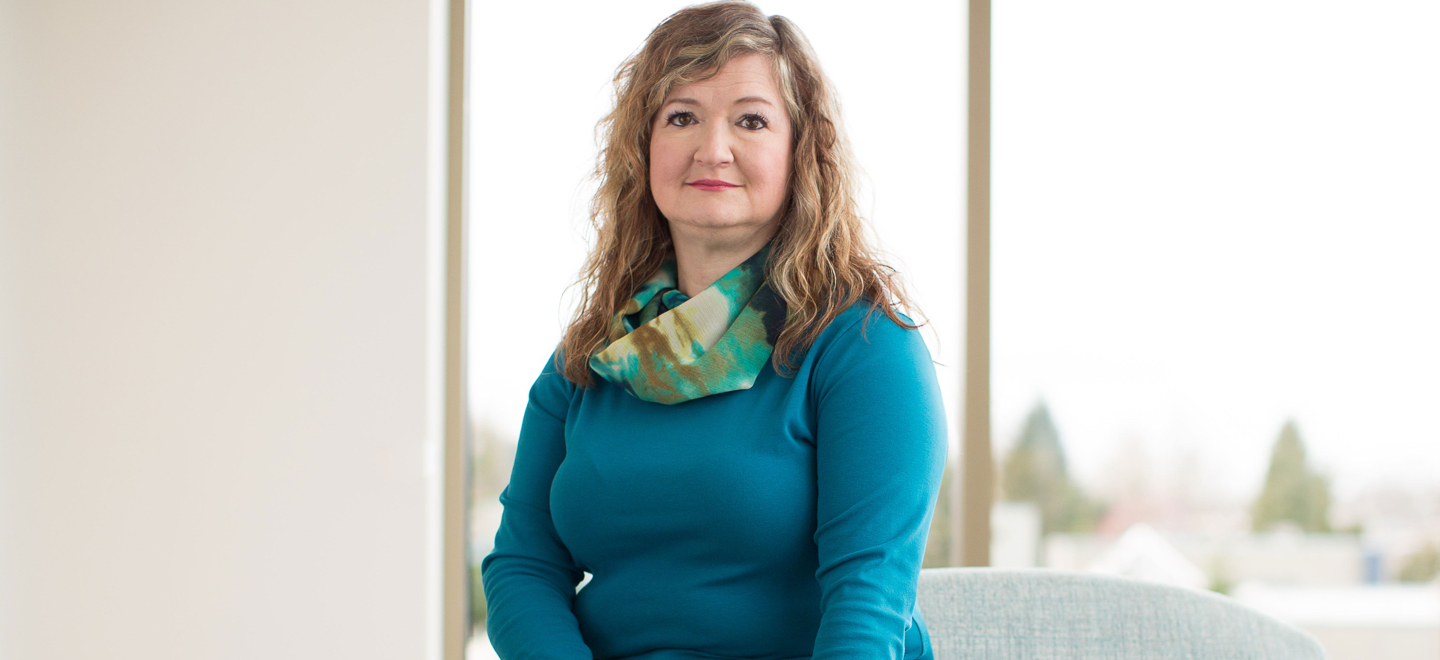When she was struck by a patient with dementia, it took palliative care LPN Teresa McFadyen completely by surprise. Luckily, it wasn’t serious and she hardly broke her stride long enough to report it.
But the incident sharpened her awareness of workplace violence issues, and Teresa decided to learn more by participating in BCNU’s Personal Resilience Workshop.
Launched in 2014 as a pilot program, then fully implemented starting in 2015, this innovative workshop helps nurses spot signs of compassion fatigue, burnout and post-traumatic stress, and learn the resiliency skills to prevent and deal with those issues.
“I read about the workshop in the BCNU mail-outs. I really value all the educational opportunities BCNU has to offer, because you always take away something that makes a difference,” explains Teresa.
Members like Teresa are finding the workshop helps them cope much better with the risk of workplace violence and other stressors that can take a toll on their physical and mental health.
A central message? Prioritize your own health, happiness and resilience.
“It seemed to be very relevant with what I was seeing in my job,” explains Teresa. “I’d leave work feeling, Wow, what’s going on? And I thought, the resiliency workshop may or may not help me deal with feeling overwhelmed, overworked, exhausted.”
It definitely did help. Teresa is deeply empathetic with her patients. Most are elderly, suffering from dementia, and come with complicated and “heart-breaking” family and medical issues. She says the workshop helped her hone violence prevention skills, so she can minimize risk, not only to herself, but all parties, of the unwelcome extra burden of a violent episode in an already difficult situation.
She also gained a sense of perspective at the workshop: “I found that even with people who are in different areas of nursing, we’re all affected by the same core issues. So, there was real connectivity,” she says, adding that she felt at ease in the small group session.493 members took Personal Resilience Workshops in 201632 personal resilience workshops offered in 2016
Teresa’s top take-away? The need to spend time doing purely enjoyable things that make no demands on her, like having a stress-melting massage, or heading outdoors for a spot of gardening.
The Personal Resilience Workshop is just one of BCNU’s major strides this year in health and safety — and particularly in workplace violence prevention. Strong gains in the new agreement are expected to make health care delivery safer for nurses and patients. New language commits health authorities to create “a culture of safety and violence reduction in every worksite.” And the groundwork was prepared for the 2017 anti-violence campaign.
With the workshop, violence hotline, purple-dot system identifying violence-prone patients and other programs, Teresa believes BCNU is providing “very good support” to members’ health and safety.
“BCNU sees the effects of violence on the nurses,” says Teresa. “It’s really good that the union reaches us with this kind of program.”
In 2016, the union offered 32 workshops with nearly 500 members participating, solid progress in BCNU’s commitment to advancing and protecting the health and workplace safety of our members.
How successful is BCNU’s Personal Resilience Workshop? The employer has acknowledged its effectiveness and agreed to work with the union to develop a single provincial program for employees working in high trauma units.
It’s a sensible, practical decision. Nursing has many physical and psychological hazards, and risk is always present. Equipping nurses, individually, to promote better outcomes, is a critical part of an overall prevention approach.
Teresa McFadyen agrees. “It helped me recognize how important my own health is. You have to give back to yourself.”
